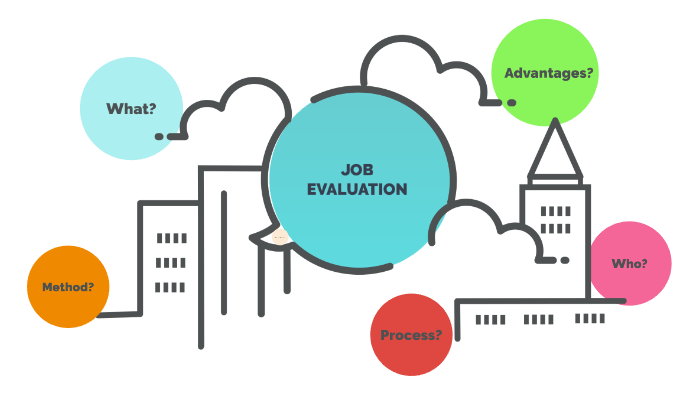
JOB evaluation is a common tool used by organisations to assess the relative worth of jobs within an organisation. The ultimate goal of job evaluation is to allow the organisation to establish a solid foundation for a pay structure. A pay structure that is competitive and equitable.
We surveyed 149 HR Professionals in Zimbabwe to check on the common job evaluation systems and the challenges faced in implementing them.
As you can see from the graph below, 62% of the respondents use the Paterson job evaluation system.
This is an increase of 8% from the previous survey we carried out six years ago.
The Castellion system has fallen significantly from an average of 38% six years ago to 9,5%. The results show that a sizeable number(12%) of respondents do not have a job evaluation system at all.
About 10% of the respondents use an in-house system. All the other remaining systems mentioned in the survey have a prevalence rate below 3%.
When we asked the respondents, which approach they used to grade jobs in their last job evaluation, 41% said they used an internal job evaluation committee, 52% said they used an external consultant to grade the jobs, and 6,72% used an automated grading system.
When we asked participants when the last company-wide job evaluation was done, 42% said over five years ago, 24% said one year ago, 17% said two years ago, 8% said three years ago, and 9,6% said four years ago.
- Mavhunga puts DeMbare into Chibuku quarterfinals
- Bulls to charge into Zimbabwe gold stocks
- Ndiraya concerned as goals dry up
- Letters: How solar power is transforming African farms
Keep Reading
When we asked the participants how effective the job evaluation is in promoting internal equity, 16% said it is very effective, 46% said it is somewhat effective, 25% said it is not very effective, and 13% said it is not at all effective.
On promoting external equity, 12% said it was very effective, 47% said it was somewhat effective, 29% said it was not very effective, and 12% said it was not effective at all.
When asked how effective their job evaluation system is in motivating staff, 12% said it was very effective, 41% somewhat effective, 31% said it was not very effective, and they said it was not effective at all.
The same pattern emerges when asked how effective job evaluation is in retaining staff.
Challenges in job evaluation in Zimbabwe are multifaceted, stemming from both organisational and systemic issues.
A significant hurdle is the lack of investment by management in job evaluation processes.
This reluctance can be attributed to several factors, including financial constraints, a perceived lack of value in the process, or a simple lack of awareness regarding the benefits of robust job evaluation.
Without adequate investment, organisations may struggle to implement comprehensive job evaluation systems, leading to inconsistencies and inequities in job grading and compensation.
Compounding this issue is the widespread lack of training among HR personnel and committee members responsible for conducting job evaluations.
This deficiency in expertise can lead to flawed evaluations, misalignment of job grades with pay scales, and, ultimately, employee dissatisfaction.
Conclusion
The research findings show a clear preference for the Paterson job evaluation system among Zimbabwean organisations, with a notable decline in the use of the Castellion system.
However, a significant portion of organisations still lack a formal job evaluation system or rely on in-house methods.
his underscores the need for further research to understand the barriers to the adoption and implementation of standardised job evaluation systems.
The reliance on both internal committees and external consultants for job grading highlights the complexity of the process and the need for expertise.
It also suggests a potential avenue for capacity building within HR departments to equip them with the skills necessary for effective job evaluation.
The effectiveness of job evaluation systems in Zimbabwe appears to be mixed.
While they are perceived as somewhat effective in promoting internal equity and motivating staff, their impact on external equity and retention is less clear.
The infrequency of company-wide job evaluations, with 42% of respondents indicating it had been over five years since their last evaluation, raises concerns about the currency and relevance of job evaluations in a dynamic business environment.
This could lead to inconsistencies in job grading and pay structures, potentially contributing to employee dissatisfaction and inequity.
Overall, the research findings point to a need for continued refinement and improvement in the implementation and utilisation of job evaluation systems in Zimbabwe.
Future research could explore the specific challenges faced by organisations, the effectiveness of different job evaluation methods, and the impact of job evaluation on broader organisational outcomes such as productivity and profitability.
- Nguwi is an occupational psychologist, data scientist, speaker and managing consultant at Industrial Psychology Consultants (Pvt) Ltd, a management and HR consulting firm. https://www.linkedin.com/in/memorynguwi/ Phone +263 24 248 1 946-48/ 2290 0276, cell number +263 772 356 361 or e-mail: [email protected] or visit ipcconsultants.com.










